Andrew Cuomo
Ticket to Ride: Cuomo’s 6 biggest transportation projects – and how much further they need to go

Philip Kamrass/ Office of Governor Andrew M. Cuomo
Gov. Andrew Cuomo has made transportation infrastructure a major priority during his tenure, and the successful completion of multiple projects is a key part of his legacy. There have been developments in many of the state’s biggest projects this year – as well as complications. Here are the six most important infrastructure investments in New York this year.
RELATED: Tracking the trains under Gov. Andrew Cuomo
Gov. Mario M. Cuomo Bridge
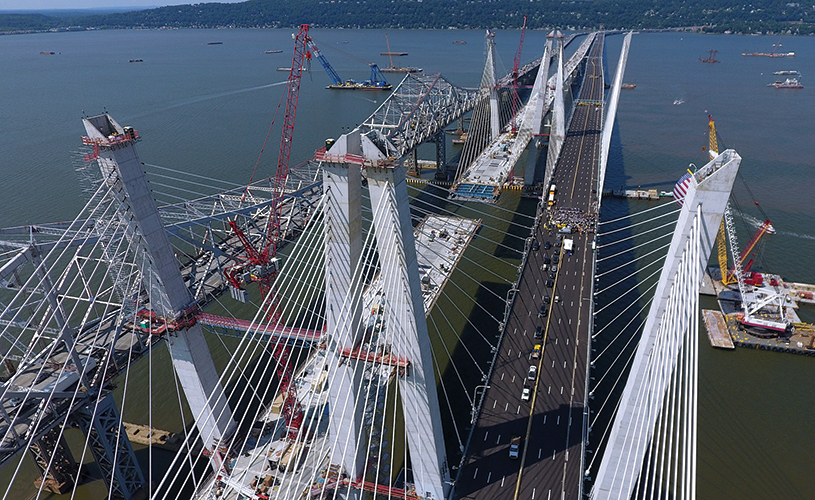
The opening of the new Gov. Mario M. Cuomo Bridge was a victory for Gov. Andrew Cuomo, in part because he succeeded in pushing a last-minute bill through the state Legislature to have the bridge named for his father. The first span of the bridge, developed by a consortium called Tappan Zee Constructors, opened “on time and on budget,” according to Cuomo. However, there are concerns about how the state will pay for the bridge. The solution may involve raising tolls, an unpopular option, and the Toll Advisory Task Force created in 2015 has never met and is more than a year overdue in providing its recommendations.
Timeline: The first span of the bridge opened Aug. 26. The second span is under construction and set to open by the end of 2018.
Cost: The New York State Thruway Authority estimated in 2013 that the bridge would cost $3.98 billion. The Thruway Authority took out an $850 million bond and the U.S. Department of Transportation provided a $1.6 billion loan for the project, so the state will have to pay back at least $2.45 billion after the second span opens in 2018.
LaGuardia Airport
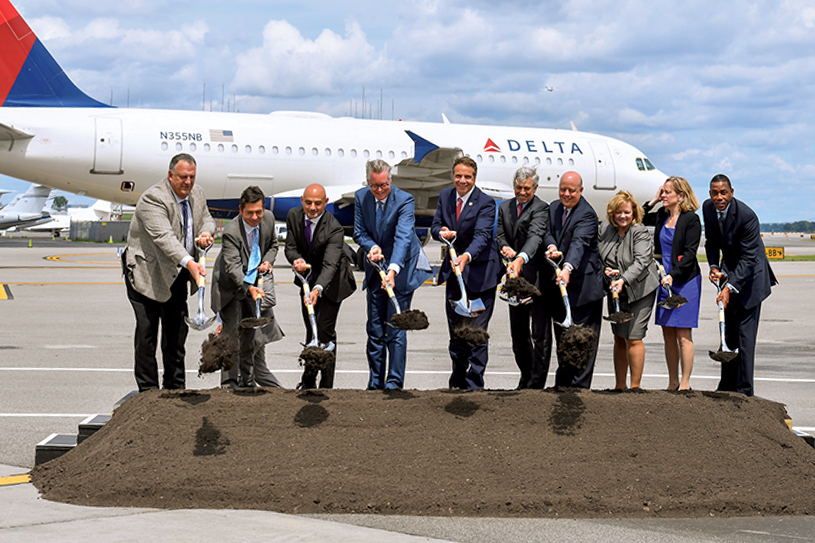
On Aug. 8, Cuomo and Delta Air Lines CEO Ed Bastian announced the beginning of construction of Delta’s new facilities in the eastern half of the airport. The western portion of the airport is being developed by LaGuardia Gateway Partners. Cuomo also announced in August that Magic Johnson Enterprises and Loop Capital Markets LLC will help to fund the project, marking the first time an MWBE firm invested in a state public-private construction project.
Timeline: Broke ground on construction for the new airport in June 2016. The first new gates are set to open in 2018, with the project to be completed by 2021.
Cost: The airport is estimated to cost $8 billion, and the governor’s office boasts that three-quarters of the project will be funded through private contributions. The Delta terminal will cost $4 billion, with Delta providing $3.4 billion.
Gateway tunnel
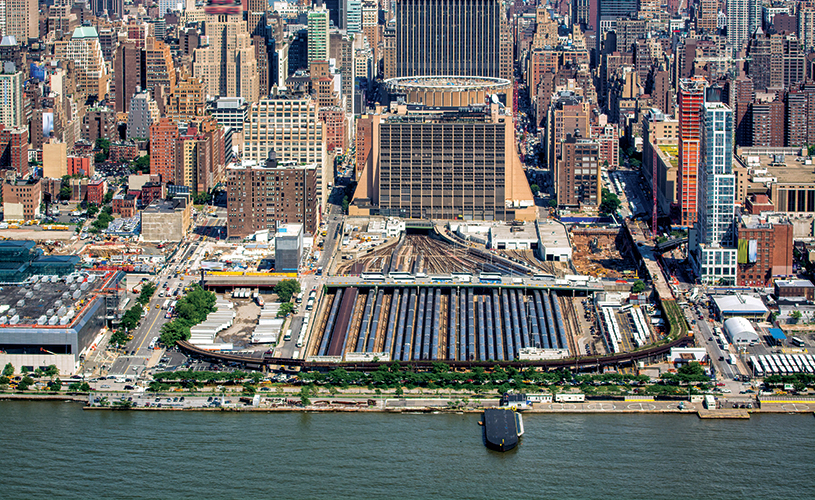
The Gateway program – a proposal that includes building a new tunnel under the Hudson River, replacing the Portal Bridge and repairing existing infrastructure – was named by the Obama administration as its top transportation priority. The new president has been less committal. In July, the U.S. Department of Transportation withdrew from the Gateway Program Development Corp., composed of representatives from New York, New Jersey and Amtrak, casting doubts that the Trump administration would fund 50 percent of the project as previously agreed. Trump held a meeting with lawmakers from New Jersey and New York on Sept. 7 to discuss the future of the project, leaving some present, like Rep. Pete King, optimistic about Trump’s commitment to the project. Gov. Andrew Cuomo was less bullish. “While the White House meeting was productive, it was inconclusive,” he said. In the face of this uncertainty, the Gateway Program Development Corp. is turning to private companies to partially cover the costs.
Timeline: Despite the uncertainty coming out of the meeting between Trump and local officials, Amtrak chairman Anthony Coscia said on Sept. 12 that construction on the project could begin by March 2018, even if the federal government does renege on the Obama administration’s promise to fund half the project.
Cost: An early estimate by Amtrak assumed that the entire Gateway program would cost $23.9 billion, with $7.7 billion going to build the tunnel underneath the Hudson. In July, the Federal Railroad Administration and New Jersey Transit released a report estimating that the project would cost closer to $30 billion, with the tunnel costing nearly $13 billion.
RELATED: Gateway to the subway, transportation officials talk solutions
LIRR third track
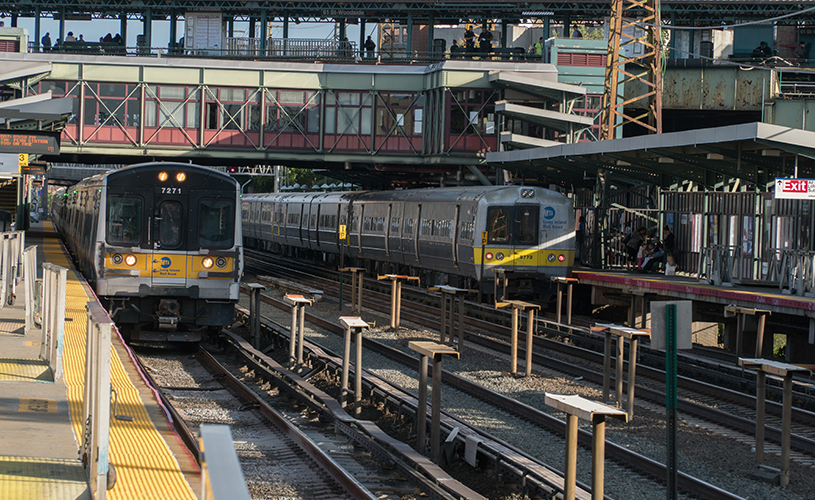
Earlier this year, it appeared as if the long-awaited third track for the Long Island Rail Road would never come to fruition, as state Senate Republicans waffled on approving a construction plan that Cuomo and the Assembly supported. The state Senate, Assembly and Cuomo all have representatives on the Capital Program Review Board, and any member has the power to veto a funding proposal. When it seemed as if state Senate Republicans opposed the plan for a third track, the MTA temporarily withdrew it from consideration in June. But state Senate Majority Leader John Flanagan announced his support for the project in July, giving the go-ahead for construction of the 9.8-mile third track on the LIRR’s Main Line corridor between Floral Park and Hicksville.
Timeline: Cuomo said on July 19 that construction is likely to begin next year, after the MTA solicits proposals for development. MTA officials have said that the project could take three to four years to complete.
Cost: $1.95 billion, with the MTA setting aside an additional $20 million to compensate local governments who may incur unexpected costs during construction.
I-81 in Syracuse
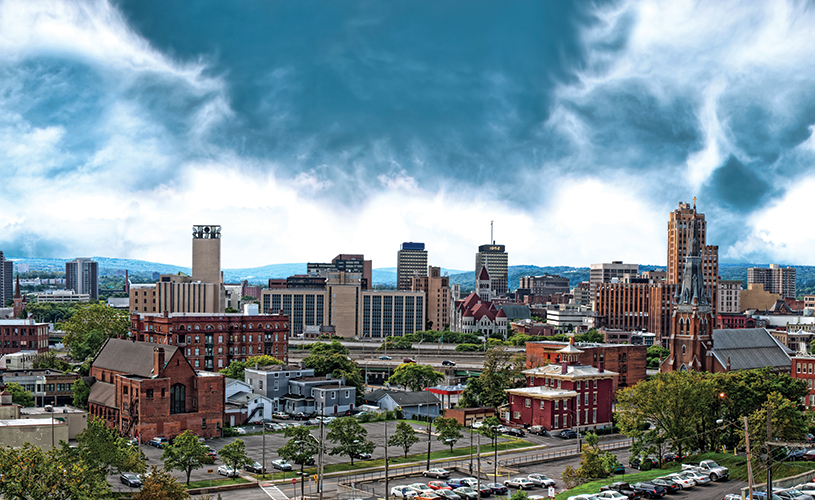
In October 2016, the state Department of Transportation announced that it had narrowed down the options to replace a crumbling elevated section, known as a viaduct, of Interstate 81 in Syracuse. The department deemed the option of building a tunnel to be too expensive, leaving the alternatives of building a new viaduct or rerouting traffic into the Syracuse city grid. However, in January, Cuomo – responding to lobbying from central New York lawmakers – reintroduced the tunnel as an option, and announced that the state would give $2 million to a private firm to study all possible replacement options. The DOT hired WSP USA to complete the analysis, with the expectation that it would be completed late this summer. The study has not yet been released.
Timeline: The DOT will not begin construction on this project until after the study and a draft environmental impact statement is released.
Cost: The DOT estimates that rerouting traffic to Syracuse would cost $1.3 billion, building a replacement viaduct would cost $1.7 billion and building a tunnel would cost $2.5 billion to $3.1 billion.
JFK Airport
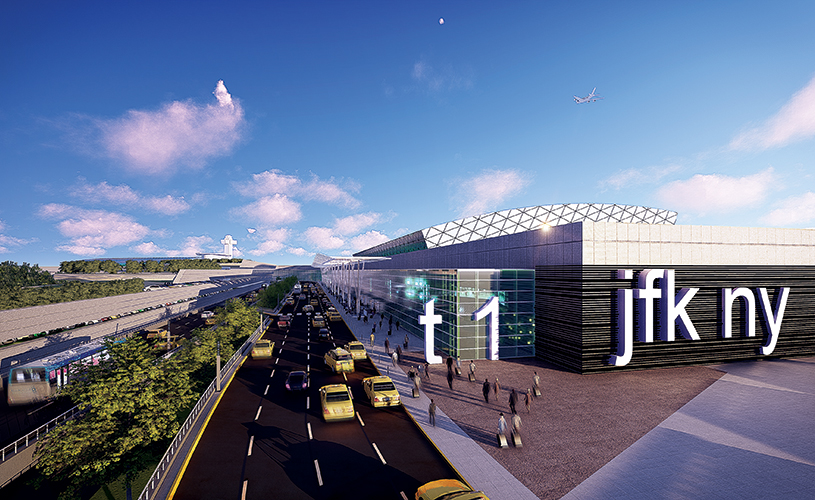
In a State of the State address on Jan. 4, Cuomo presented his vision to transform John F. Kennedy International Airport. The proposal included redeveloping terminals so they become interconnected, redesigning the roads surrounding JFK, expanding rail service to the airport as well as providing new amenities and state-of-the-art security systems. On Sept. 21, after a request for proposal process where the Port Authority of New York and New Jersey solicited private firms for proposals to implement Cuomo’s vision, the governor announced the selection of a Mott MacDonald-led team to develop a plan.
Timeline: The governor’s office has not yet released a timeline for this project, and did not respond to questions regarding the timeline.
Cost: The governor’s office estimates it will cost $10 billion.